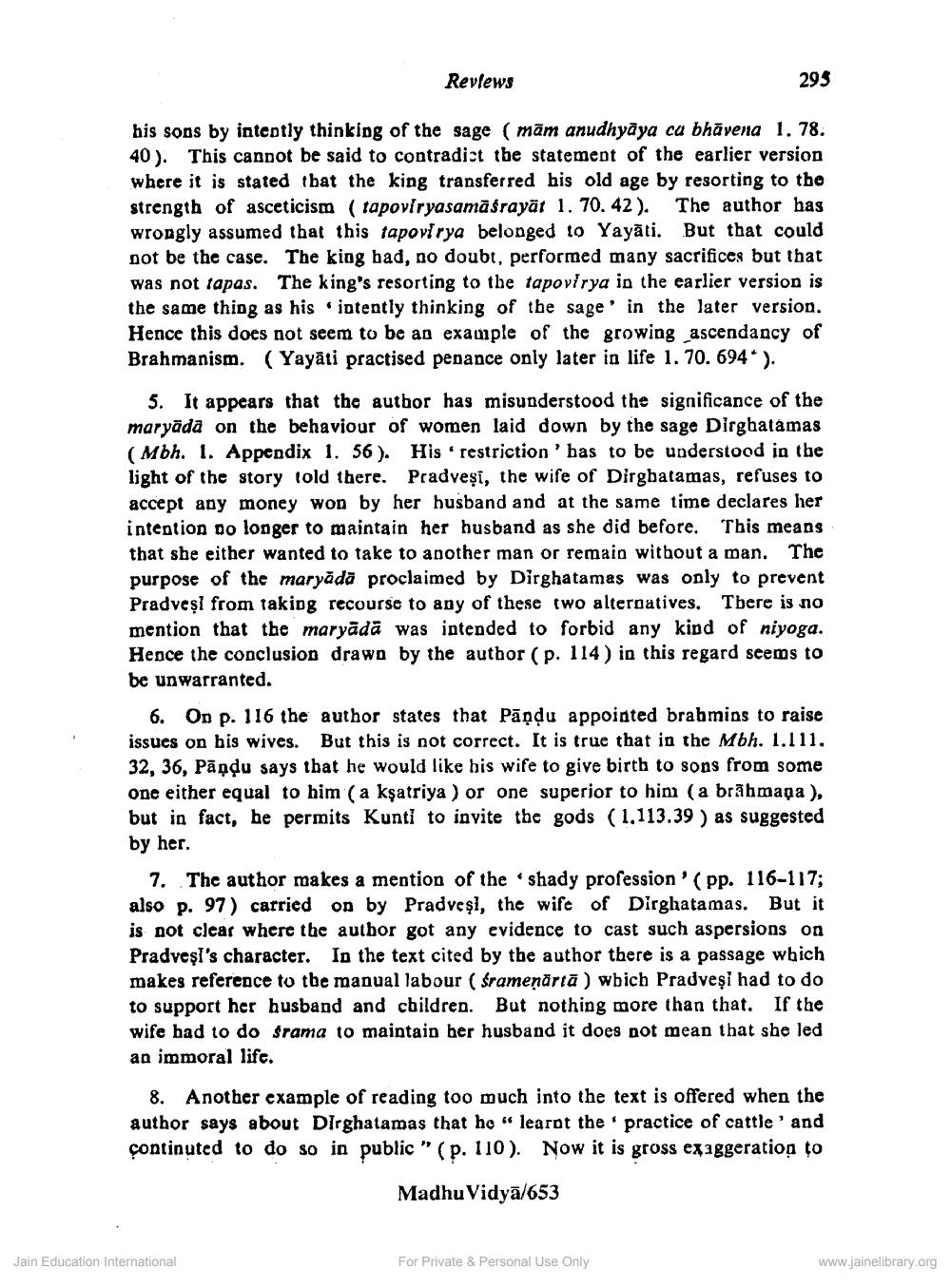________________
Reviews
293
his sons by inteptly thinking of the sage ( mām anudhyāya cu bhāvena 1. 78. 40). This cannot be said to contradict the statement of the earlier version where it is stated that the king transferred his old age by resorting to the strength of asceticism (tapoviryasamāśrayāt 1. 70.42). The author has wrongly assumed that this tapovirya belonged to Yayāti. But that could not be the case. The king bad, no doubt, performed many sacrifices but that was not tapas. The king's resorting to the tapovirya in the earlier version is the same thing as his intently thinking of the sage' in the later version. Hence this does not seem to be an example of the growing ascendancy of Brahmanism. (Yayāti practised penance only later in life 1. 70.694).
5. It appears that the author has misunderstood the significance of the maryäda on the behaviour of women laid down by the sage Dirghatamas (Mbh. 1. Appendix 1. 56). His restriction' has to be understood in the light of the story told there. Pradveși, the wife of Dirgbatamas, refuses to accept any money won by her husband and at the same time declares her intention no longer to maintain her husband as she did before. This means that she either wanted to take to another man or remain without a man. The purpose of the maryādā proclaimed by Dirghatamas was only to prevent Pradveși from taking recourse to any of these two alternatives. There is no mention that the maryāda was intended to forbid any kind of niyoga. Hence the conclusion drawn by the author (p. 114) in this regard seems to be unwarranted.
6. On p. 116 the author states that Pāņdu appointed brahmins to raise issues on his wives. But this is not correct. It is true that in the Mbh. 1.111. 32, 36, Pandu says that he would like his wife to give birth to sons from some one either equal to him (a kşatriya ) or one superior to him (a brāhmaṇa ), but in fact, he permits Kunti to invite the gods (1.113.39 ) as suggested by her.
7. The author makes a mention of the shady profession' (pp. 116-117; also p. 97) carried on by Pradveşl, the wife of Dirghatamas. But it is not clear where the author got any evidence to cast such aspersions on Pradveşl's character. In the text cited by the author there is a passage which makes reference to the manual labour ( frameņārtā ) wbich Pradveși had to do to support her husband and children. But nothing more than that. If the wife had to do srama to maintain her husband it does not mean that she led an immoral life.
8. Another example of reading too much into the text is offered when the author says about Dirghatamas that he “ learot the practice of cattle and continuted to do so in public" (p. 110). Now it is gross exaggeration to
1
.
Madhu Vidyā/653
Jain Education International
For Private & Personal Use Only
www.jainelibrary.org




